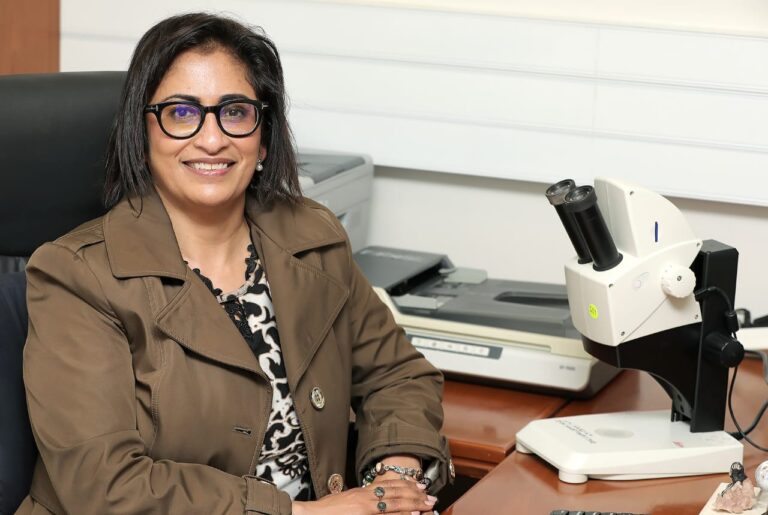| 2024/08/16 |
|
Media Statement WESTERN CAPE – This year, the South African Police Service (SAPS) joins the country in observing Women’s Month by highlighting the work of its women in blue through a series of profiles. Today, we introduce the nation to Colonel Veni Ruthenavelu. It was her passion for collecting bank notes and stamps that paved the way for Ruthenavelu joining the Question Documents Section at the Plattekloof Forensic Science Laboratory. She had been in the Chemistry environment as an analyst for three years when an opportunity presented itself. With an honours degree in Chemistry, Ruthenavelu had started finding Chemistry analysis quite routine and was ready for a new challenge. A relatively unknown field even within policing circles, the Question Documents field entails everything with regards to analysis of documents. The analysts in this field operate on six levels which are: • Level 1 deals Counterfeit or fraudulent banknotes/currencies from all different countries; • Levels 2-4 handles the analysis of all other security documents such as identity documents, passports as well as educational qualifications; • Levels 5 and 6 focus on analysis handwritings and signatures. How this field developed, Ruthenavelu explains it was “borne out a need from court where such analysis was required in order to deal with criminal cases opened.” She traces its origins from the United States hence in the country there is still no tailor-made qualification in this field. However, prospective applicants to the field are currently drawn from the Chemistry, Criminology, Computer Science, and Police Science streams of higher education. This calls for intensive in-house training which comprises on-the-job experiential training for three to five months as well as ongoing mentorship for years on all levels. Even for those who are qualified in the field there is continuous professional development that comes in the form of training courses whose training manuals are developed by Ruthenavelu as a manager. What makes this necessary is the fact that the environment they work in is not static, it develops all the time and requires that the experts in the field are always a step ahead of the criminal element as they are also called to testify in court as expert witnesses. Hence, Ruthenavelu’s mock trials within the section come in handy when they are subpoenaed to testify in court. When as a Chemistry honours graduate she could have been working as an analyst anywhere, she acknowledges what they do in the section is gratifying because they make a big difference in the lives of ordinary people and in a sense “give back to society”. Collaboration is key to the field and she acknowledges their constant interactions with the Reserve Bank, US Secret Service, Chinese Government, immigration officials and airports. Going into the future, Ruthenavelu envisions a time when the banknotes would be obsolete and everything would be paperless. It is on that basis she pleads for technological advancement to be embraced and expedited within the environment especially with the type of “fraud we are seeing these days”. Her work as an analyst, commander, trainer and mentor has been acknowledged within SAPS hence the section won the Best Forensic Section award at the National Excellence Awards for 2022/2023. At the Division Awards, the Western Cape team won Best Question Documents awards for two consecutive years. The mother of two wishes to see more young analysts could join the environment and lead the digital era that is unfolding. Ends
Enquiries:
X (Twitter): https://twitter.com/SAPoliceService |
|
|
| Additional content: |
|
|

